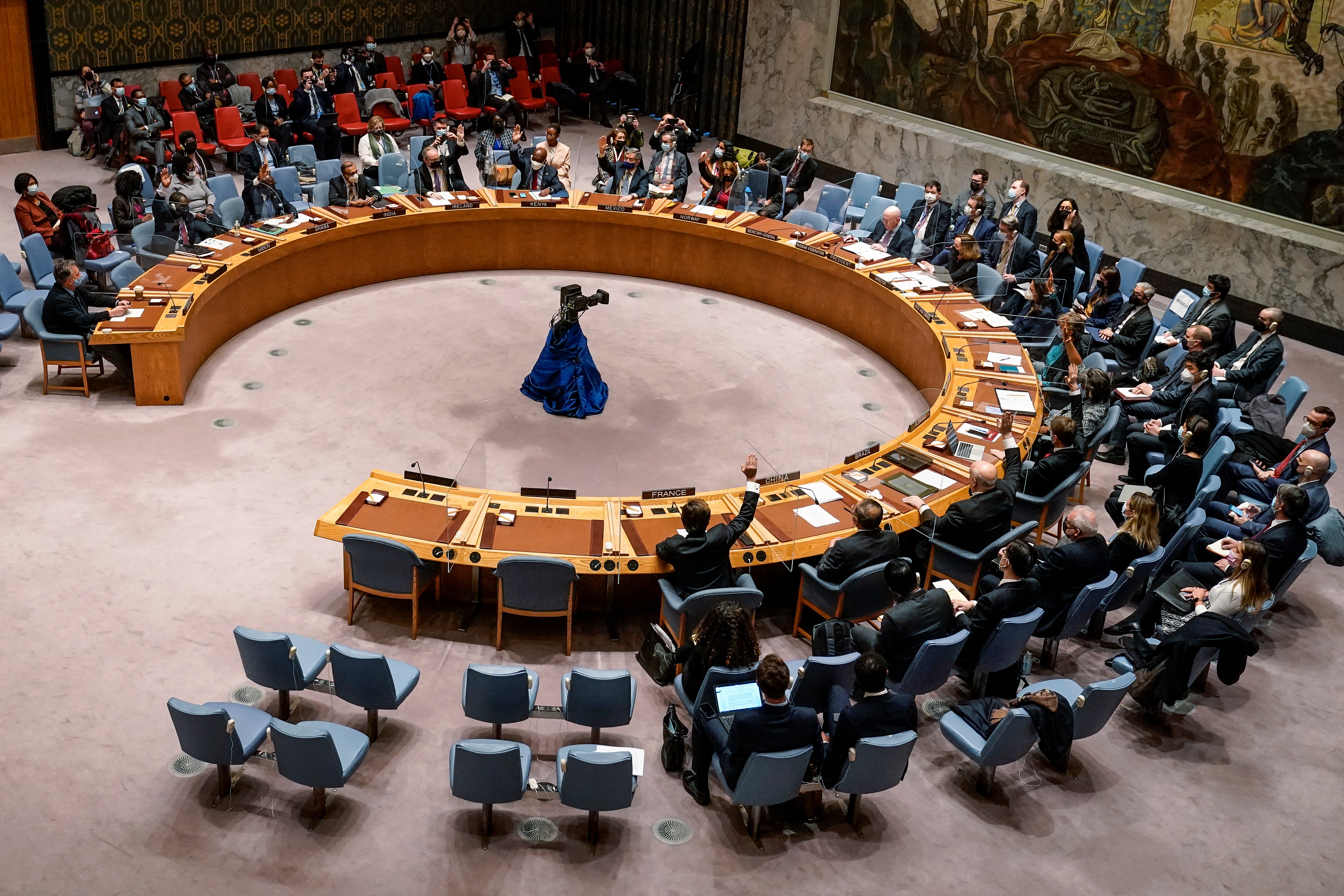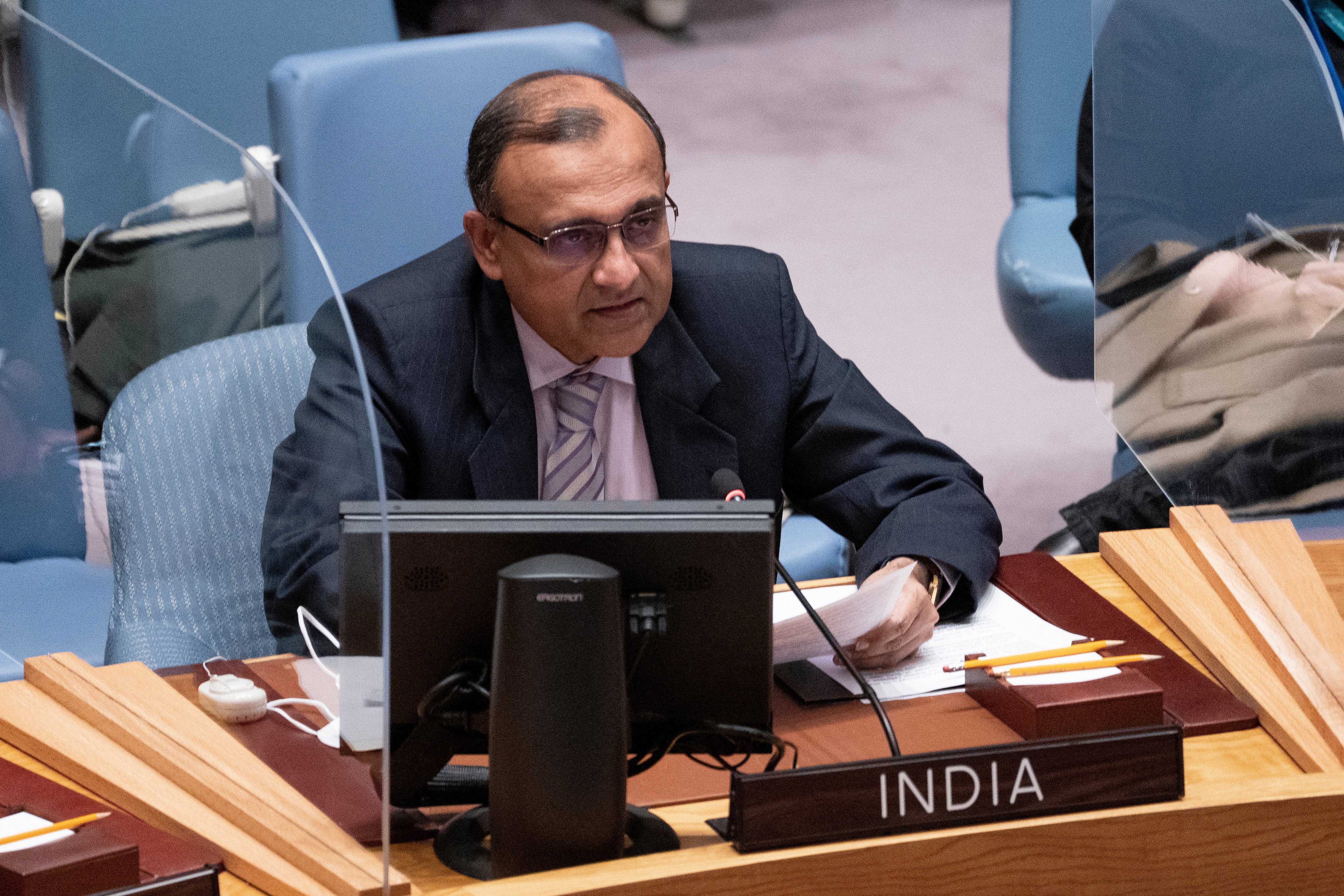Why India abstained at UN over Russia invasion of Ukraine
Power rivalry with China pushed India towards Russia, says Sean O’Grady – but for how long?


It came as something of a disappointment that the largest democratic nation on Earth has consistently abstained on United Nations resolutions condemning Russia’s war on Ukraine.
India is now in its 75th year as an independent state – it broke free of imperial rule, just as the Ukrainians are trying to resist it now. It does seem out of kilter with India’s internationalist image.
India’s diplomats have abstained both as a member of the security council and once in the wider General Assembly. Although abstention, alongside China and South Africa, signalled a lack of support for Russia’s blatant aggression, it also fell short of the kind of gesture that America and Europe were looking to see the whole world unite around.
Instead, India’s diplomats contented themselves with wishy-washy words such as “there is no other choice but to return back to the path of diplomacy and dialogue”. Except that there plainly is a choice.
Why did this happen? Like all members of the UN, India was following its national interest. Money is part of it. As a dynamic, still fast-growing economy, India needs trade, and Russia is a useful source of raw materials and foodstuffs and is, to a lesser degree, a market for Indian goods and services. India’s power stations and factories gobble up Russian coal and gas, and it can’t afford to give them up. Hence sitting on the fence.
The trade and economic dimension adds to great power rivalry with China that has long pushed India towards Russia. India has historically been wary of China, and the territorial disputes between the two in their mostly frozen borderlands have occasionally erupted into armed conflict – including a brief full-on war back in 1961.

India has therefore looked to its other big neighbour to the north for support. During the Cold War, and India’s long experiment with a socialist planned economy under Indira Gandhi and the Congress Party, Russia became a more trusted political and military partner and supplied military equipment and diplomatic support over border disputes with China and Pakistan (Kashmir). Because Pakistan tended to ally itself with the United States, especially during the Soviet occupation of Afghanistan, India naturally tilted towards the Soviet Union, within its formal “non-aligned” status. These habits have persisted long after India rejoined the world economy. The picture is more blurred now, with Pakistan recently signing a big trade deal with Russia, and India in a strong enough position in comparison to Moscow; it is, after all, a nuclear power.
More tenuously, Narendra Modi, India’s populist prime minister, may have seen in Vladimir Putin something of himself as a kind of strong man. For a while in the 2010s there was even talk of an axis of such figures, also comprising the likes of Trump, Bolsonaro in Brazil, Orban in Hungary, Erdogan in Turkey, Bin Salman in Saudi Arabia, Xi in Beijing and Duterte of the Philippines. With only a certain nationalistic and authoritarian style to unite them, they were quite the mixed bag and, bereft of much in common in the way of ideas and conflicting national interests, hardly constituted a global movement. Putin “going tonto”, as the British defence minister described it, has dimmed the appeal of the strongman.
India could perhaps reflect on what the Ukraine war really means on the global scale, as a repudiation of the UN Charter and the concept of war as a means of settling international disputes. It lives in what might be called a dangerous neighbourhood. One day, for all its might, India might need the support of the UN in the face of aggression from a troublesome neighbour. Would the world abstain on India?



Join our commenting forum
Join thought-provoking conversations, follow other Independent readers and see their replies
Comments